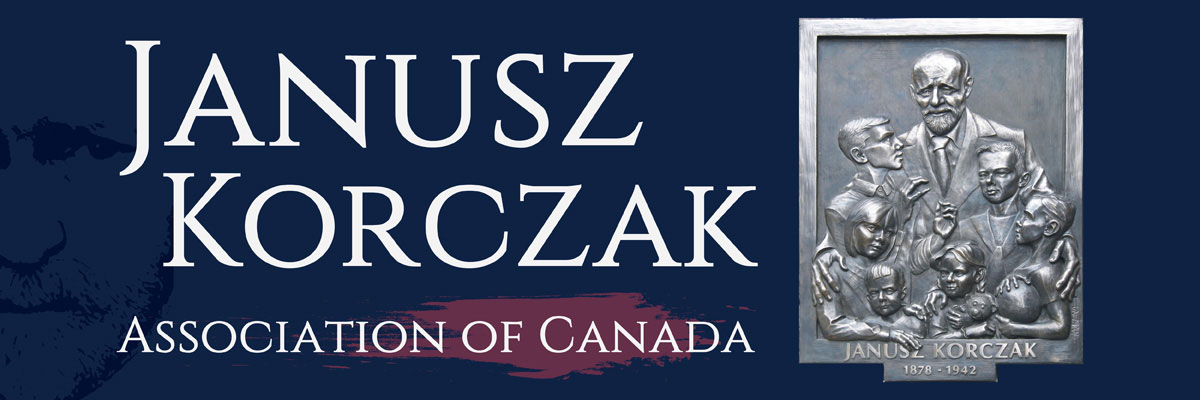
Lecture #5, “Janusz Korczak’s Enduring Legacy: Social Paediatrics in Canada and Vancouver” took place on February 18, 2016 at the Robert H. Lee Alumni Centre.
The lecture started with the introductions by Lillian Boraks-Nemetz, author, a board member of the Janusz Korczak Association of Canada. Lillian spoke about Janusz Korczak, particularly about the last years of his life.
The lecture was led by Dr. Curren Warf, who introduced the speakers and moderated the discussion. The three talks were:
Equity and accompaniment for all children: past and nowadays – Dr. Gilles Julien
A broad and specific preventive approach is needed when aiming to protect vulnerable children from the negative accumulative effects of toxic stress and traumatic experiences in their preparation towards a successful and fulfilled adult life embracing the principle that it is easier to build strong children than to repair broken men. Social Paediatrics focuses on addressing the social determinants of health of children, including poverty, marginalization and racism through protecting vulnerable children from the cumulative negative effects of toxic stress and traumatic experiences on human development. Dr. Julien presented the mission and the approach he and his team has developed, based on science and evidence, in Quebec over the past decade to reach the goals of building a strong network – the Circle of the Child- and strong children, and improving the well-being of children through an entrepreneurial process within vulnerable communities. The Community Social Pediatric approach is a call to action for vulnerable children. Janusz Korczak’s spirit remains with us in working to build strong children. He was, and still is, a powerful inspiration for all of us who strive to prevent children from being left hanging in limbo and obtaining the services and accompaniment to enable them to fulfill their developmental needs and preserve their rights in accordance with The United Nations Conventions of the Rights of the Child.
Wrapping Our Ways Around Them: Indigenous communities and the child welfare system – Ardith (Walpetko We’dalks) Walkem, Master of Law
Exploring the ways that Indigenous culture, community, land, and language form part of the identity and belonging for Indigenous children. Rather than looking at attachment and belonging limited to parents or immediate family, equally, for Indigenous children, the broader network of belonging and meaning must be considered in planning to ensure their identity and connections over their lifetime. This presentation will explore the understanding that restoring the ability of our communities and Nation to become actively and meaningfully involved in caring for our children is necessary to break the cycle that keeps Indigenous children in disproportionate numbers entering into – and remaining within – the child welfare system.
“Promoting Child and Youth Health and Rights in Vancouver through the RICHER Social Paediatrics Model” – Dr. Christine Loock
For the past decade UBC has been engaged in a community, place-based partnership to enhance access to primary through specialist health care, to address inequities in health outcomes for some of Canada’s most socially vulnerable children and youth. The RICHER program provides Responsive, Intersectoral, interdisciplinary Child and Youth Health services with Education and Research opportunities, through a collaborative practice model based in multiple community sites in Vancouver’s Inner City. This relationship centred, collaborative approach has allowed a diverse and disenfranchised community to develop shared vision and values, and to address inequities in access and ongoing violations of child/youth rights as set out in the UN Convention on the Rights of the Child, ratified by Canada over 2 decades ago.
Children, youth and their families working with committed stakeholders from the community, Children’s & Women’s Hospital of BC, Vancouver Coastal Health, and UBC have developed enduring and trusting relationships to work with government and non-government organizations, who are also tasked to uphold the UN Convention on the Rights of the Child. This RICHER approach has facilitated an intersectoral service delivery model that is embedded and effective, allowing this community and others to more fully address child and youth rights to access health, education, and safe spaces; and their rights to an identity, to participate, and to be heard.